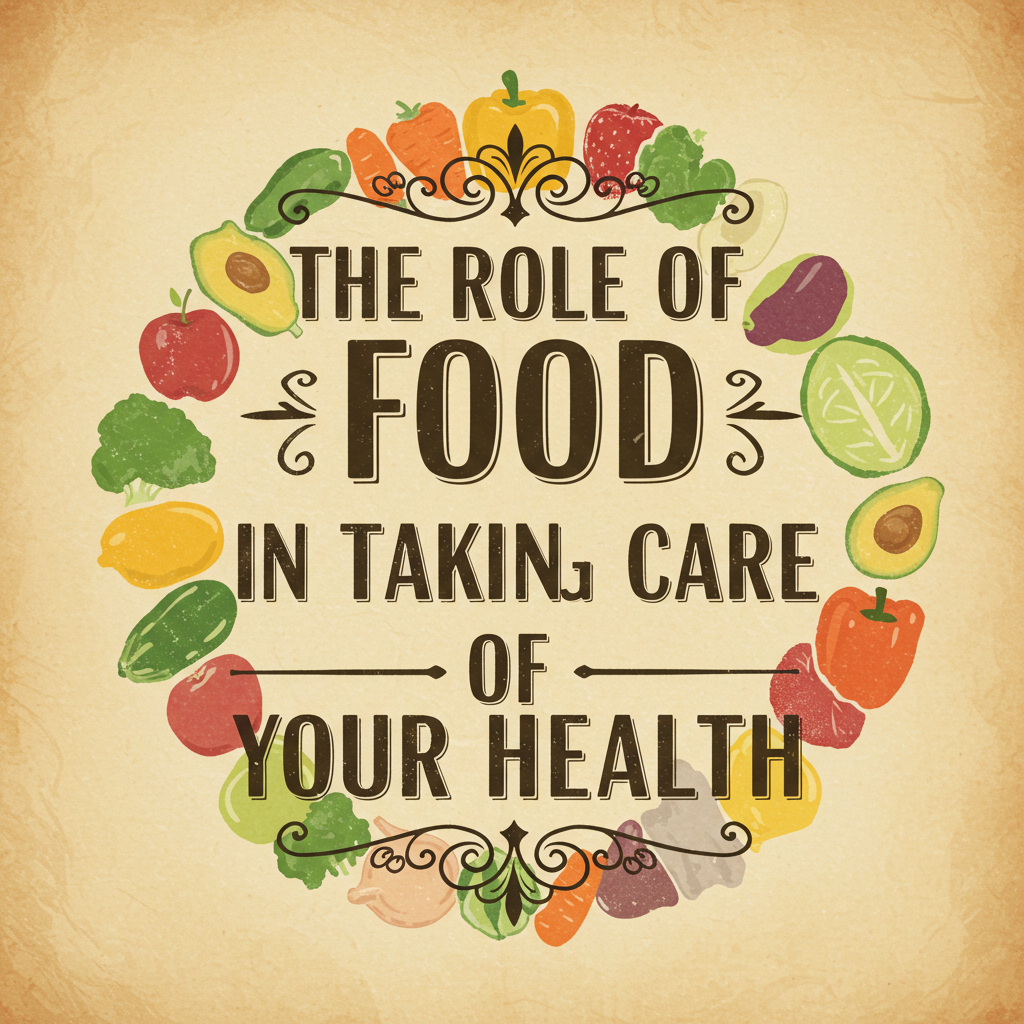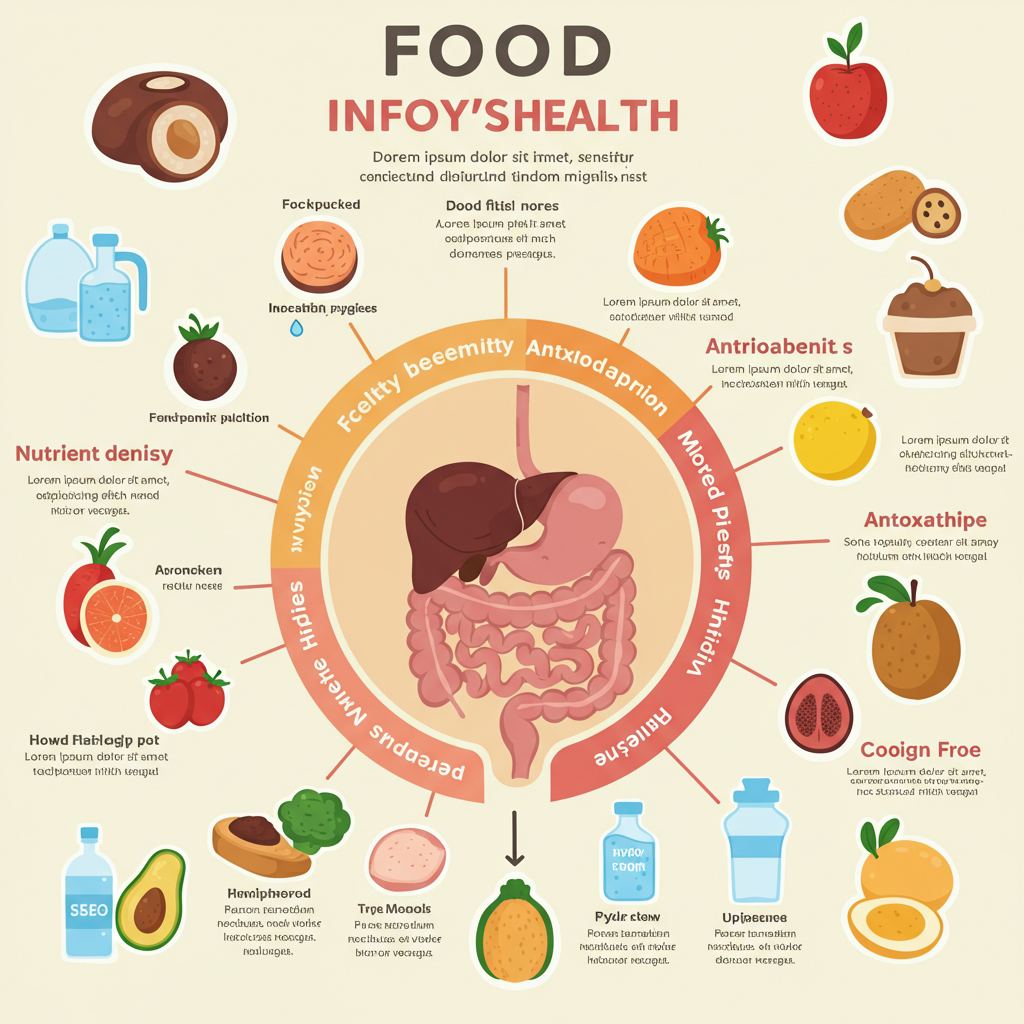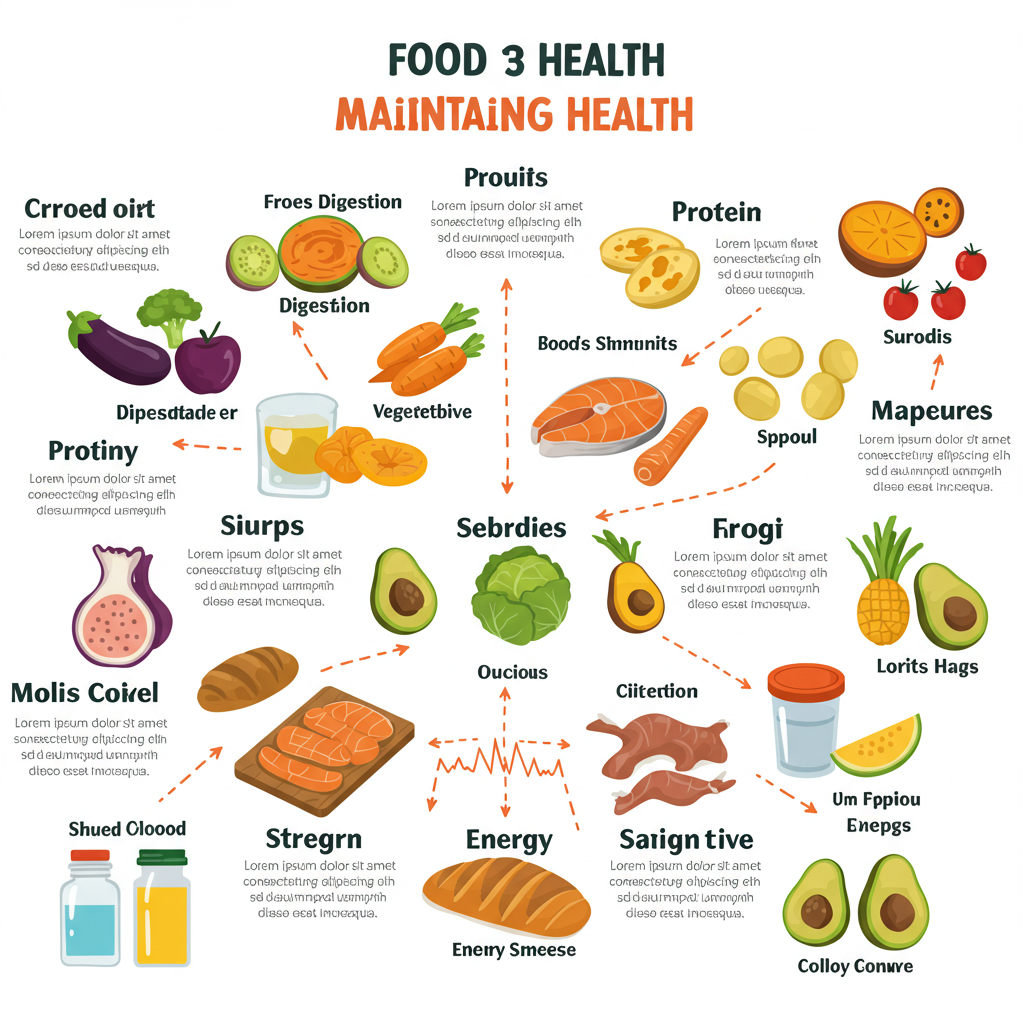Food is not just a necessity for survival; it plays a crucial role in maintaining good health and well-being. What we eat directly affects our body’s functions, mood, energy levels, and even our longevity. Proper nutrition is essential in preventing diseases, managing weight, boosting immunity, and enhancing our mental health. In this article, we’ll explore how different aspects of food contribute to taking care of your body and mind.

1. The Basics of Nutrition
Nutrition refers to the process by which the body takes in and uses food to maintain health. It involves consuming nutrients such as carbohydrates, proteins, fats, vitamins, and minerals, all of which are essential for the body to function properly. These nutrients perform a variety of vital roles:
- Carbohydrates: Provide energy to the body’s cells, especially the brain, which relies on glucose for fuel. Whole grains, fruits, and vegetables are excellent sources.
- Proteins: Help in muscle repair, enzyme production, immune function, and tissue growth. Good protein sources include lean meats, legumes, eggs, and dairy products.
- Fats: Essential for hormone production, brain health, and the absorption of fat-soluble vitamins (A, D, E, and K). Healthy fats come from avocados, nuts, seeds, and olive oil.
- Vitamins and Minerals: Crucial for maintaining various bodily functions. For example, calcium supports bone health, and vitamin C boosts immunity. Fruits, vegetables, dairy products, and lean meats are key sources.
2. Maintaining a Balanced Diet
A balanced diet includes the right proportions of macronutrients (carbs, proteins, and fats) and micronutrients (vitamins and minerals) to ensure that the body gets everything it needs to function optimally. A well-balanced diet also helps in managing weight, reducing the risk of chronic diseases like heart disease, diabetes, and obesity, and improving energy levels.
Here are some tips for maintaining a balanced diet:
- Eat a variety of foods: Include different colors of fruits and vegetables on your plate to ensure you’re getting a broad range of nutrients.
- Incorporate whole grains: Choose whole grains like brown rice, oats, and quinoa over refined grains to increase fiber intake.
- Choose lean proteins: Opt for lean cuts of meat, poultry, fish, or plant-based proteins like tofu, tempeh, and legumes.
- Control portion sizes: Overeating, even healthy foods, can lead to weight gain. Be mindful of portion control.

3. The Importance of Hydration
While food is essential for energy and nutrition, water plays an equally vital role in taking care of your body. Proper hydration is essential for digestion, circulation, temperature regulation, and waste removal. Dehydration can cause fatigue, headaches, and poor concentration, and it can lead to more serious health problems over time.
The general recommendation is to drink about eight 8-ounce glasses of water a day, though individual needs may vary depending on factors like activity level and climate. Consuming water-rich foods like fruits (watermelon, oranges) and vegetables (cucumbers, tomatoes) also helps in maintaining hydration.
4. Food for Mental Health
Our mental health is as important as our physical health, and food can play a big role in how we feel mentally and emotionally. The brain requires specific nutrients to function at its best, and certain foods can boost mood, improve cognitive function, and reduce stress and anxiety.
- Omega-3 fatty acids, found in fatty fish (salmon, sardines) and flaxseeds, are known to improve brain function and reduce the risk of depression.
- B vitamins (such as B6, B12, and folate) help in regulating mood and reducing the symptoms of depression. You can find them in foods like eggs, dairy, leafy greens, and legumes.
- Magnesium, which is found in foods like spinach, nuts, seeds, and whole grains, is essential for relaxation and reducing anxiety.
- Antioxidant-rich foods, such as berries, dark chocolate, and green tea, can help protect the brain from oxidative stress and improve cognitive function.
5. The Link Between Food and Disease Prevention
One of the most important roles of food is its ability to prevent and manage chronic diseases. Certain foods are particularly effective in reducing the risk of conditions like heart disease, diabetes, high blood pressure, and even cancer.
- Heart disease: A diet rich in fiber, healthy fats, and antioxidants helps reduce the risk of heart disease. Foods like oats, berries, fatty fish, and nuts have been shown to support heart health by reducing cholesterol levels and inflammation.
- Diabetes: Consuming foods with a low glycemic index (GI), such as whole grains, legumes, and non-starchy vegetables, helps regulate blood sugar levels and prevent spikes, reducing the risk of type 2 diabetes.
- Cancer: Antioxidant-rich foods like fruits, vegetables, and whole grains can help protect cells from damage that may lead to cancer. Cruciferous vegetables like broccoli and kale have compounds that are believed to reduce cancer risk.

6. Food for Strong Immune Function
Your immune system is the body’s defense against infections and diseases, and food plays a vital role in keeping it strong. Eating a variety of nutrient-dense foods can help boost your immune function and keep you healthy.
- Vitamin C is well-known for its immune-boosting properties. Citrus fruits, bell peppers, strawberries, and broccoli are excellent sources.
- Zinc, found in foods like pumpkin seeds, beans, and shellfish, helps in the production of immune cells and reduces the duration of colds.
- Probiotics, present in fermented foods like yogurt, kefir, and sauerkraut, support gut health, which in turn boosts the immune system.
7. Food and Longevity
Research suggests that a healthy, balanced diet is one of the most important factors for longevity. In particular, diets that are plant-based and rich in antioxidants, vitamins, and minerals have been associated with longer lifespans.
The Mediterranean diet, which emphasizes vegetables, fruits, whole grains, legumes, olive oil, and moderate amounts of fish, has been linked to a reduced risk of chronic diseases and improved longevity. Similarly, plant-based diets that focus on whole, unprocessed foods are associated with a reduced risk of early death.
8. Mindful Eating: A Holistic Approach to Health
In addition to choosing healthy foods, how we eat is just as important. Mindful eating involves paying attention to the experience of eating—being present in the moment, savoring your food, and listening to your body’s hunger cues.
This approach helps improve digestion, reduce overeating, and foster a healthier relationship with food. Mindful eating practices also help reduce stress and anxiety around food choices and encourage a more balanced, enjoyable approach to eating.